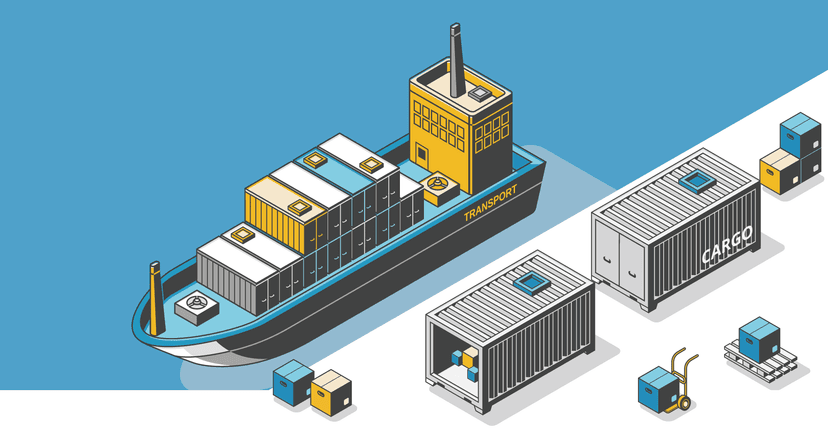
FCL Shipping Explained: Costs, Benefits, and Best Practices (2025)
FCL shipping (Full Container Load) involves hiring an entire shipping container exclusively for your cargo, offering faster transit times an...
While bank services may offer funds that are limited, export factoring offers finance that can expand as a company's orders and invoices grow.

Factoring is a scalable finance that enables businesses to commit to larger orders because they know they will have the funds on hand to fulfil them while also covering other operating costs.
Export factoring, often referred to as invoice financing or account receivable financing, is a business financing strategy in which a financial intermediary buys a company's receivables and provides cash advances to their operations. There are a few reasons why this sort of funding is different from a conventional bank loan.
First, it is not reflected as debt on a company's balance sheet, unlike bank loans. Additionally, since export factoring frequently does not demand collateral, small and medium-sized enterprises can more easily qualify for this type of financing. Furthermore, rather than relying on the borrower's own financials, export factoring capital is determined by the creditworthiness of a company's clients.

Receivables-based lending offers special advantages. In essence, the money you receive via export factoring represents the money your customer owes you. However, a financial intermediary quickens cash flow to your firm rather than waiting for your customer to pay you, which in the modern business environment might take up to four months.
In this way, a company is free from the burden of worrying about how to "pay back" the person who gave it the money. Receivables are transferred from the business to the factoring firm in more of an exchange than a loss for either party. When the invoice is due, the buyer is then responsible for paying the factor directly. The factor manages the collection procedure and bookkeeping as an extension of the borrower's back office.
Factoring helps business secure short-term financing and expand the scale and scope of business.
1) Accelerate payment for your exports: Instead of waiting weeks or months for your international buyer to pay the full amount of the invoice owed to you, factoring your foreign receivables allows you to obtain payment from the factor (financial institution) immediately.
2) Lower the risk of buyer non-payment: The money due to you by your overseas buyer transfers to the factor (financial institution) once a factor has purchased your international receivables. To eliminate the danger of your company not being paid, the factor (financial institution) assumes the risk of the overseas buyer's non-payment on its books.

We can breakdown the export factoring process in four steps mentioned below:
Step 1: The exporter enters into an agreement with the factor – a financial institution.
Step 2: The exporter sends goods to overseas buyer on mutually agreed terms – $50,000 worth of goods – and allow 60 days credit to pay the invoice.
Step 3: The exporter gives foreign receivables invoice to the factor – a financial institution – and the factor makes payment for a percentage of the amount. As per our example, the factor may pay $40,000 immediately for $50,000 worth of receivables.
Step 4: The exporter takes the money, clears some of his payments and reinvests some of it to work on next export order. The factor shall collect the payment from buyer.
There are two types of factoring – recourse and non-recourse. Let us get an overview for each type of factoring in the following paragraphs.
1) Recourse factoring: The factor in recourse factoring does not assume the risk of bad loans. Even if the buyer refuses to pay, factor will recover their money from exporter. How many days after the payment due date you must return the advance will be outlined in the factoring agreement. The exporter must still pay the fee and interest regardless of whether they refund the advance (discount charge).
2) Non-recourse factoring: In a non-recourse factoring arrangement, the financial intermediary who purchases the receivables of a business also offers credit insurance on those receivables. This credit-insured strategy protects an exporter if their buyer misses a payment deadline.

A business can give its clients extended payment terms by utilising export factoring. A business has access to the additional cash flow from factoring, which is the capital it requires to run its operations. If a business wants to grow its sales, it must provide extended payment arrangements to customers.
Export factoring makes it easier for businesses to thrive in a trading environment where delayed payment is the new norm in which most of the foreign trade is handled on open account payment terms. Export Factoring to know more about export factoring services from Cogoport.